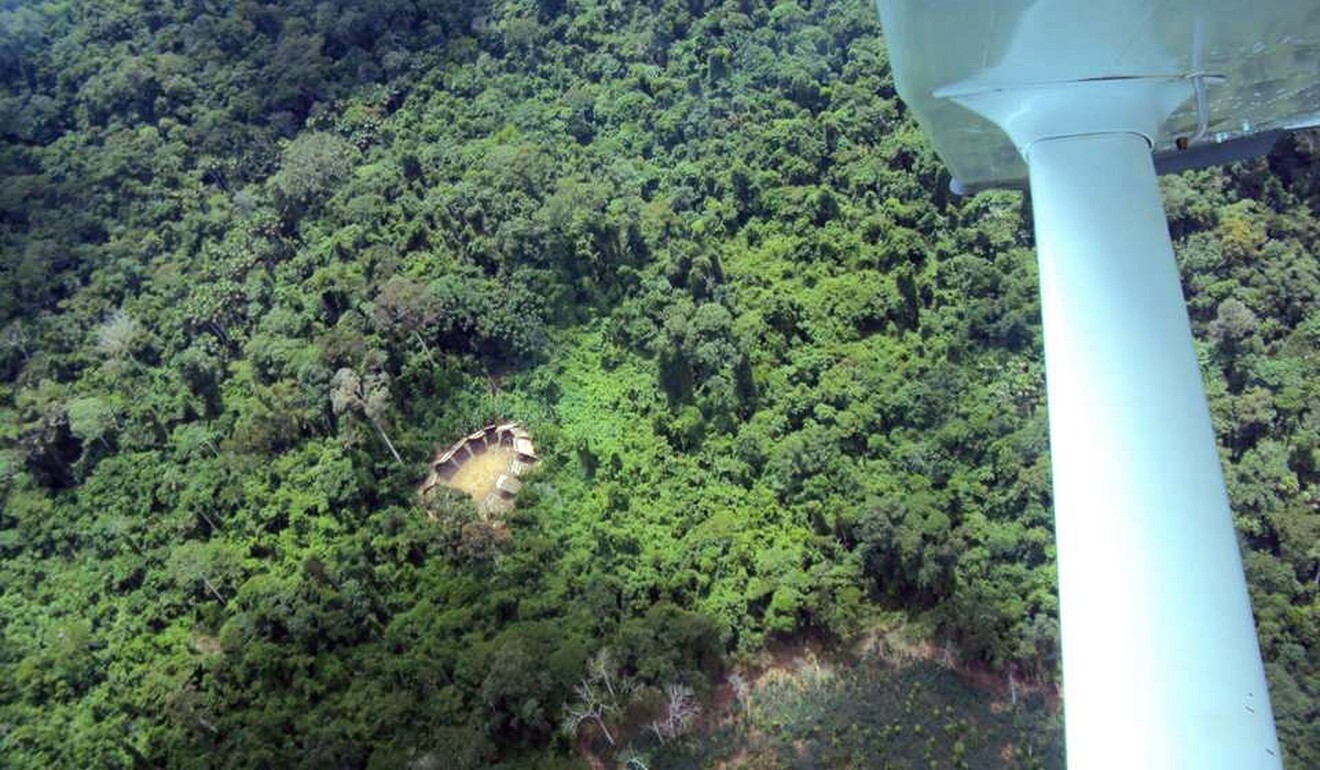Coronavirus reaches Yanomami people in Amazon
 AFP / POOLThe Yanomami people live in remote areas of the Amazon and are known for their vulnerability to foreign diseases
AFP / POOLThe Yanomami people live in remote areas of the Amazon and are known for their vulnerability to foreign diseases
Brazil said Wednesday a first case of the new coronavirus had been detected among the Yanomami people, an Amazon indigenous group known for its remoteness and its vulnerability to foreign diseases.
"Today we confirmed a case (of the virus) among the Yanomami, which is very worrying," Health Minister Luiz Henrique Mandetta told a news conference.
"We have to be triply cautious with (indigenous) communities, especially the ones that have very little contact with the outside world."
The Yanomami patient, a 15-year-old boy, is being treated in the intensive care unit at a hospital in Boa Vista, the capital of the northern state of Roraima, officials said.
Brazil has now confirmed at least seven coronavirus cases among the indigenous population, according to the newspaper Globo.
The first was a 20-year-old woman from the Kokama ethnic group who was confirmed positive a week ago.
Brazil is home to an estimated 800,000 indigenous people from more than 300 ethnic groups.
The Yanomami, who are known for their face paint and intricate piercings, number around 27,000.
Largely isolated from the outside world until the mid-20th century, they were devastated by diseases such as measles and malaria in the 1970s.
Indigenous peoples in the Amazon rainforest are particularly vulnerable to imported diseases, because they have been historically isolated from germs against which much of the world has developed immunity.
Coronavirus reaches Yanomami people in Amazon
Brazil said on Wednesday a first case of the new coronavirus had been detected among the Yanomami people, an Amazon indigenous group known for its remoteness and its vulnerability to foreign diseases.
“Today we confirmed a case (of the virus) among the Yanomami, which is very worrying,” Health Minister Luiz Henrique Mandetta told a news conference.
“We have to be triply cautious with (indigenous) communities, especially the ones that have very little contact with the outside world.”

Huts of a Yanomami tribe, inside the Yanomami territory in Roraima,
northern Brazil. File photo: AFT
The Yanomami patient, a 15-year-old boy, is being treated in the intensive care unit at a hospital in Boa Vista, the capital of the northern state of Roraima, officials said.
Brazil has now confirmed at least seven coronavirus cases among the indigenous population, according to the newspaper Globo.
The first was a 20-year-old woman from the Kokama ethnic group who was confirmed positive a week ago. Brazil is home to an estimated 800,000 indigenous people from more than 300 ethnic groups.
The Yanomami, who are known for their face paint and intricate piercings, number around 27,000.
Largely isolated from the outside world until the mid-20th century, they were devastated by diseases such as measles and malaria in the 1970s.
https://www.scmp.com/news/world/united-states-canada/article/3079074/coronavirus-latest-us-cases-pass-400000-wto-warns

























